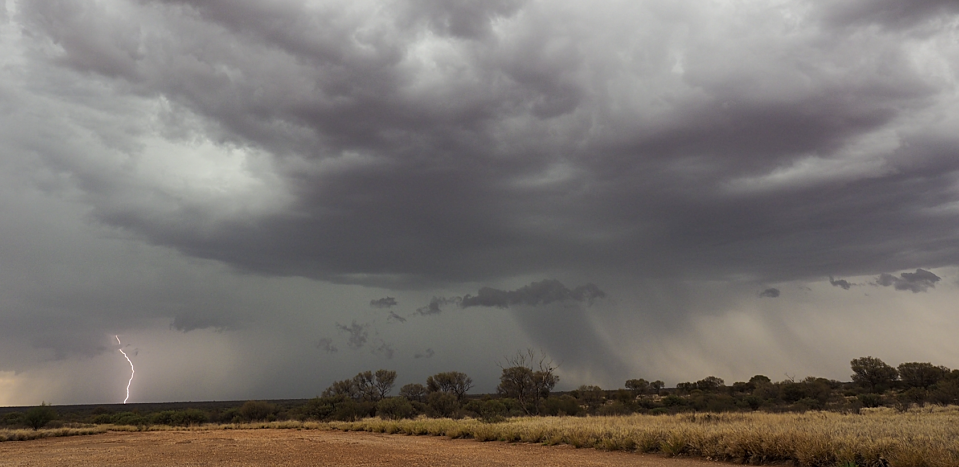
One Nation’s chances as a dominant conservative party are piñata-like
Posted on 11 Feb 2026
Opinions polls insist Pauline Hanson's fortunes are on the rise, but it is likely that enthusiasm…
Posted on 10 Mar 2025
By Doug Taylor

Just as good businesses have operating costs, so do good charities. The more transparent we are about this, the more everyone will benefit, writes Doug Taylor, CEO of The Smith Family.
Imagine your loved one is rushed to hospital in an emergency. As they’re loaded into an ambulance, sirens blaring, will you stop to grill the medics on how much the hospital spends on overheads?
My guess is no. Because what matters to you is the care and treatment your child, parent, partner or sibling is about to receive.
Charities – the work we do and the funds it takes to do it – deserve to be regarded in the same way. Because like hospitals, we exist solely to provide a vital service to our community.
The most important question to ask us is what real, life-changing outcomes do we create for people – not how much do we spend on IT or electricity.
Most charities are painstakingly careful about how we use our donors’ money. Proportionally, what we spend on indirect costs is often well below what a typical business spends.
All our team at The Smith Family focuses on how funds are best used, and our board and management play a key role in governance. Yet many in the wider community lack understanding of what it costs to run an operation that delivers lasting social impact.
At The Smith Family, if we didn’t spend money evaluating our programs, we couldn’t prove they actually work. If we didn’t fundraise, we couldn’t support our future work.
If we didn’t train our staff and volunteers, or invest in IT, we would compromise our ability to support children in almost 800 schools every year. If we didn’t invest in cybersecurity and data protection, we’d put the safety of those children, and our donors’ privacy, at risk.
"Skimping on overheads jeopardises the future of our sector. If this starvation cycle isn’t stopped, ultimately, we will all suffer."
In the corporate world, everyone knows that if a company is to succeed and grow, it must invest in the right areas.
With not-for-profits, however, some people assume that we ought to be able to deliver maximum social impact at minimal cost. This penny-pinching mentality is unrealistic and threatens the vital work of many not-for-profits.

The Paying What It Takes report, by Social Ventures Australia and the Centre for Social Impact, showed that not-for-profits were underinvesting in critical capabilities, because of a pervasive belief that funders were reluctant to provide the full financial support needed to create impact. Either that, or charities underplayed their costs, to try to satisfy donors.
This underspending and underreporting are known in the charity sector as the starvation cycle: when unrealistic expectations grow over time and leave not-for-profits starved of resources.
The latest Australian Charities and Not-for-profits Commission (ACNC) data shows that in 2023, with inflation still high, operating costs for Australia’s 60,000-plus registered charities climbed 12.6 percent, while revenue increased only 5.6 percent.
It’s a vicious loop. Inflation is hurting people on low incomes and creating unheard-of demand for support from not-for-profits. At the same time, charities must absorb escalating operating costs.
Skimping on overheads jeopardises the future of our sector. If this starvation cycle isn’t stopped, ultimately, we will all suffer.
We want to help people make more informed decisions about the charities they generously support, whether as a donor, a volunteer, or otherwise. This means improving understanding of what it takes for a charity to deliver quality support – and that’s by investing in building and running a quality organisation.
The more open we are, the more that together, with you, we can create life-changing impact.
Doug Taylor is CEO of the national children's education charity The Smith Family.
Learn more about how your organisation can change the narrative by visiting the recently relaunched Pay What It Takes website.

Posted on 11 Feb 2026
Opinions polls insist Pauline Hanson's fortunes are on the rise, but it is likely that enthusiasm…

Posted on 04 Feb 2026
As we move into 2026, I can’t help but think the world is wobbling a little.

Posted on 28 Jan 2026
The 2026 Australia Day Honours list delivered a sobering reality check. After reaching gender…

Posted on 28 Jan 2026
This year’s Adelaide Writers’ Week began with the cancellation of a talk by Palestinian-Australian…

Posted on 16 Dec 2025
As Australia prepares to welcome its one millionth refugee, human rights advocate and former…

Posted on 10 Dec 2025
What a year 2025 has been, particularly at a national level where the Parliament and politics as we…

Posted on 26 Nov 2025
Charities and not-for-profits can be outstanding advocates for their cause, their community, their…

Posted on 12 Nov 2025
Managing a charity or not-for-profit in Australia is often more complex than it may appear. On any…

Posted on 29 Oct 2025
One of the most contentious debates across many areas of human services is the for-profit versus…

Posted on 28 Oct 2025
Workers in the not-for-profit sector lift up communities, care for those in crisis and do work that…

Posted on 08 Oct 2025
The cost of climate change's impact on Australian life is increasingly well documented. The…

Posted on 08 Oct 2025
The Wurundjeri Indigenous people who live in and around Melbourne understand their environment as…